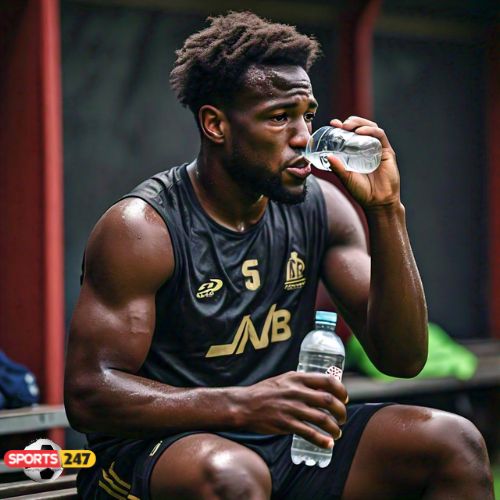Proper hydration is crucial for athletes to maintain peak performance and avoid the dangers of dehydration during football games and other sports activities.
Knowing when and how much to drink can make a significant difference in endurance, energy levels, and overall safety. Here’s how athletes can optimize their hydration before, during, and after sports events.
Read Also: EPL: Iwobi Vows To Harm Man United Again As Fulham Visits Old Trafford For Season Opener
Athletes should hydrate effectively during football games and other sports activities to maintain performance and prevent dehydration. Here’s a guide on how they should take water:
1. Pre-Activity Hydration
– Start Hydrated: Athletes should drink water throughout the day leading up to the game or activity. Around 16-20 ounces of water should be consumed 2-3 hours before the activity.
– Top-Up: About 15-20 minutes before the game or activity, an additional 8-10 ounces of water should be consumed.
2. During Activity Hydration
– Regular Sips: Athletes should drink water every 15-20 minutes during the game or activity. The recommended amount is about 7-10 ounces each time.
– Consider Sports Drinks: For intense activities lasting over an hour, especially in hot and humid conditions, athletes may benefit from sports drinks that contain electrolytes (like sodium and potassium) and carbohydrates to replace what is lost through sweat.
– Listen to the Body: Athletes should not wait until they are thirsty to drink. Thirst is often a sign that the body is already slightly dehydrated.
3. Post-Activity Hydration
– Rehydration: After the game or activity, athletes should drink water or a sports drink to rehydrate. The goal is to replace the fluids lost through sweat. A good rule of thumb is to drink 16-24 ounces of fluid for every pound lost during the activity.
– Monitor Urine Color: A pale yellow color indicates proper hydration. Dark yellow urine may indicate dehydration and a need for more fluids.
4. Consider Environmental Conditions
– Hot and Humid Conditions: Increase fluid intake as the body loses more water through sweat.
– Cold Conditions: Hydration is still important, as the body can lose water through respiration and sweat even in cold weather.
5. Avoid Overhydration
– While staying hydrated is crucial, drinking excessive amounts of water without replacing electrolytes can lead to hyponatremia, a dangerous condition where sodium levels in the blood become too low. This is especially a concern in long-duration events.
By following these guidelines, athletes can stay hydrated, maintain their performance, and reduce the risk of dehydration-related issues.
For further information
Contact:
Dr. Kolade Kolapo
+234-7032088130









